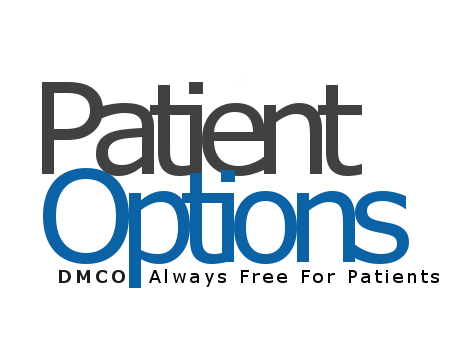Clinic Enrollment
- Don't be a victim
- Signup is quick and easy
- Cancel anytime
Request More Information
- Free to patients
- No obligation demo
- Get started today
Enforcement of medical billing compliance issues is on the rise. Audits of healthcare providers are on the rise. Doctors are easy money for insurance companies and the government. We all know colleagues who have been audited and ultimately had to pay the insurance company and/or been fined by authorities. Some have lost their licenses and some have even been sent to jail. The federal government recoups $8 for every $1 it spends on enforcement. That figure is even greater for private health insurance companies’ audits.
Redefining the Direct Care Model by Simplifying the Doctor-Patient Relationship!
No matter how many patients you have, $99/month per provider tax ID location covers you.
Get more updates and information from Patient Options
- Providing Patient Access to Care at a truly discounted rate.
- As providers, we have enough of an issue placing value on our services, why burden your patient with "membership fee" of joining a discount medical plan.
- Offer compliant, discounted services of self-pay Patients under the same roof with other third party payors.

More Patients, No Worries
Patient Options is free for patient participation, and is redefining the direct care model. We help you run a more compliant office while simplifying the doctor-patient relationship.
Watch how easy it is to add a patient.
Patient Options DMCO can help protect you from these following things:
Time of Service
The prompt pay discount is legal in many states, but many times it is a front for a dual fee schedule (illegal) because it is not implemented correctly and not truly a time of service discount. Many times the discounts are excessive and not truly representative of the savings incurred by "prompt pay."
Anti Kickback Laws
Anti kick back laws were established in 1972 to prohibit remuneration (kickbacks) for services reimbursable under federal healthcare programs. Many states have similar laws in place for private payors as well.
Civil Monetary Penalties
Enacted in 1981. CMS is responsible for enforcing non-fraudulent aspects and the OIG is responsible for enforcing CMPs that involve fraud or false representations. CMPs can add up to $10,000 per item or service!!
False Claims Act
False claims act violations happen in normal everyday practice unknowingly by many providers. Examples of such violations include, up coding, down coding, unbundling codes, kickbacks, and improperly waiving coinsurance or deductibles.
Dual Fee Schedules
It is in violation of most private insurance agreements to have a different rate for cash patients vs. insurance patients. Many PIP/Medpay carriers use this as a reason to discount bills as well. This is a common theme for board complaints and fines.
Inducement Violations
Section 1128A(a)(5) of the Social Security Act prohibits a provider from offering a Medicare beneficiary any remuneration that should likely influence the beneficiary’s selection of a particular provider of payable items or services. Violations may subject the provider to civil monetary penalties o up to $10,000 for each wrongful act.
Patient Options works for all types of healthcare practitioners:
General Practitioners - Chiropractors - Medical doctors - Dentists - Physical Therapists - Massage Therapists - Podiatrists - Osteopaths - Naturopaths - Surgeons - Urologist - Rheumatologists - Radiologists - Psychiatrists - Podiatrists - Acupuncturists - Physiologists - Pediatricians - ENT Specialists - Orthopedic Surgeons - Oncologists - Obstetricians - Neurosurgeons - Neurologists - Neonatologists - Microbiologists - Internal Medicine Specialists - Gynecologists - Endocrinologists -Dermatologists - Cardiologists - Anesthesiologists - Allergists - Audiologists
We provide help and compliance protection against accusations from your state's board for dual fee schedules, anti-kickback accusations, time of service discounts, inducement violations, civil monetary penalties, and false claims act accusations.
Patient Options creates and stores information consistent with HIPAA, DSS, and PCI standards and procedures for all patients and clinic applications. Clinic/Patient correspondence outside of website-based information may contain confidential or legally privileged information or private and sensitive healthcare information that is intended to be shared only with the named recipient. Any enclosed healthcare information may be protected under the Privacy Act, 5 USC 552 (a), and/or Health Insurance Portability and Accountability Act (HIPAA) (PL104-191) and its various implementing regulations. If this correspondence contains healthcare information, it is being provided to you after appropriate authorization from the patient or under circumstances that do not require patient authorization. Recipients are obligated to maintain it in a safe, secure, and confidential manner and this information must be protected in accordance with those provisions. Redisclosure without additional consent or as permitted by law is prohibited.



